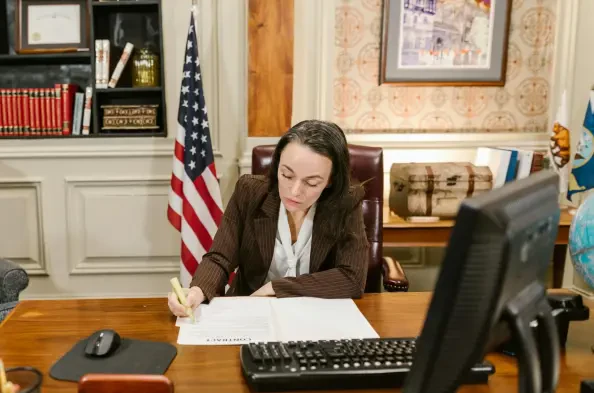In a landscape where information is omnipresent and readily available online, the weight of expert testimonies in legal proceedings has been called into question. This report examines how the changing perceptions of expertise, driven by a rapid shift in information consumption patterns and increasing public skepticism, are reshaping the role of expert testimonies in American courtrooms.
The Current State of Expert Testimonies in Legal Proceedings
Traditionally, expert testimonies have played a critical role in legal settings by providing specialized knowledge that can influence jury decisions and trial outcomes. Their significance lies in their ability to offer insights that laypersons might not comprehend, thereby assisting in elucidating complex issues. However, due to significant shifts in how people access and disseminate information, this traditional role is transforming, leading to new challenges in courtroom dynamics.
Trends in Public Perception of Expertise
Shifts in Information Consumption
Societal changes have fundamentally altered the way information is consumed. The transition from traditional media sources to digital platforms has empowered individuals to access vast amounts of information quickly. This shift is amplified by social media, where information spreads rapidly, often in condensed, engaging formats. Unlike academic discourse, digital platforms occasionally promote positions based more on popularity than accredited expertise, which influences public perception of what constitutes valid or reliable information.
Increasing Skepticism Toward Experts
Several factors contribute to growing public skepticism toward expertise. Political influences and significant historical events, such as the COVID-19 pandemic, have played roles in fueling this distrust. The vast swath of online information, often conflicting and polarizing in nature, further complicates the landscape, leading to a decreased trust in traditional scientific, medical, and legal authorities. Consequently, this skepticism extends into the courtroom, affecting how juries perceive expert testimonies.
Impact on Expert Testimonies
Public skepticism fundamentally alters courtroom dynamics, impacting the way jurors approach expert testimonies. Jurors who are increasingly informed, or misinformed, by digital platforms may find themselves questioning the credibility of experts. This presents considerable challenges in presenting expert testimonies that resonate and maintain integrity. The skepticism towards authority demands adaptability in how expert testimonies are structured and delivered to retain their significance and effectiveness.
Legal Challenges and Adaptations
Obstacles in Upholding Expert Testimony Integrity
Numerous technological, regulatory, and societal barriers challenge maintaining the credibility of expert testimonies. The influence of rapidly changing technology and information sources necessitates continuous adaptation by legal professionals. Strategies such as leveraging engaging, narrative-driven presentations have emerged as effective ways to surmount these obstacles. Legal professionals are employing novel methods to craft testimonies that appeal to jurors’ sensibilities, ensuring they are both credible and compelling.
Strategies for Effective Expert Testimonies
Adapting to evolving juror perspectives means reshaping expert testimonies into engaging narratives. Employing storytelling techniques and relatable analogies allows experts to convey technical information more effectively. High-profile trials have demonstrated the success of these methods, with expert testimonies crafted as compelling narratives capturing juror attention and enhancing understanding.
Regulatory Considerations
The legal standards governing expert testimonies, such as the Federal Rules of Evidence, play a crucial role in maintaining the credibility and reliability of testimonies. These regulatory frameworks ensure consistent courtroom procedures, yet face pressure to evolve alongside changing public attitudes. The balance between adhering to established legal protocols and adapting to new information environments remains a pivotal challenge for legal practitioners.
Future Trends in Expert Testimony
Anticipated Developments and Innovations
With advancements in fields like artificial intelligence and data analytics, the future of expert testimonies is poised for transformation. These technologies hold the potential to revolutionize how expert insights are integrated into legal settings. As public sentiment and information consumption continue to evolve, legal practices must adjust to meet the expectations and understanding levels of jurors informed by these technologies.
Influences on Future Legal Strategies
Emerging market disruptors and shifting consumer preferences necessitate adaptations in expert testimony approaches. Regulatory changes are anticipated to play a significant role in shaping future courtroom procedures and expert credibility. As the legal landscape adjusts to societal shifts, the integration of relatable expert testimony becomes increasingly crucial.
Conclusion and Recommendations
In light of evolving public skepticism towards traditional expertise, the landscape of expert testimonies in legal contexts is undergoing significant transformation. The rising challenge is to tailor testimonies that resonate with contemporary jurors and maintain their relevance and integrity. Legal professionals are encouraged to adopt strategies emphasizing narrative and engagement, ensuring expert insights are effectively communicated and understood. By aligning testimonies with modern expectations, the legal domain can continue to bolster trust in expert contributions, paving the way for informed and fair judicial proceedings.






